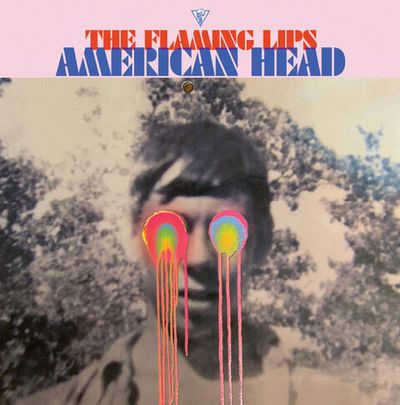Review: The Flaming Lips’ ‘American Head’ is a triumphant slice of life

The Flaming Lips are longtime staples of the rock world, known for their psychedelic and experimental works which – over the course of a 21-album career – have either soared or flopped. “American Head” is a triumphant step for the group, combining the best parts of their acid rock sound with music from their Oklahoma roots.
Life, as seen through the Lips’ eyes, is a beautifully confused thing. The album gives the sense of seeing deep into a slice of life. Its narrative songs are drawn from the lives of their writers, which lends a sense of grounding to the album. That said, the album contains a good amount of generality, as well. From a front-porch scene comes the sadness of the world; from a regular work shift comes the perspective of death.
Wayne Coyne’s lyrics have always shone in their simplicity, and on “American Head,” which tells numerous true and surreal stories, his writing is in its classic form. In “Dinosaurs on the Mountain,” he writes, “I wish the dinosaurs / Were still here now / Be fun to see them playing / On the mountains.” At first it comes off a childish whimsy, but it is not difficult to take him seriously in a way. Lines as declarative as “Now I see the sadness in the world / the sad sad sad sad sadness” are somehow nuanced by the composition.
“American Head” is heavily produced, and to great effect. After listening to Coyne’s wide and diffuse vocals, it is almost unsettling to think about hearing him acoustically. The album’s production provides a sense of coherence. The sound palette is not the same for every song, but certain aspects of it (Coyne’s vocals, the keys, the guitar) run through the album and tie the thing together.
The sound the album captures is a mélange of the Flaming Lips as we know them, certain aspects of Americana and a tinge of anesthesia. Throughout its duration, it cultivates an atmosphere perhaps ethereal, perhaps wholly earth-bound. It’s a curious dichotomy, which seems in part to derive from the hallucinogenic themes of the album.
One of this album’s best features is one typical of the Flaming Lips; with 21 studio albums under their belt, they have mastered the integration of their acoustic, classic rock into experimentally produced vocals and sounds. In “Flowers of Neptune 6,” this intersection is in perfect balance. The song is finely tuned, a real highlight.
Some of the album’s best moments come when the band unleashes their almost bluegrassy twists. In “You N Me Sellin’ Weed,” the band takes a break from its slow-moving ballad and plays a toe-tappin’ bit of dancin’ music. That track also features some almost Travis Scott “do do do”s in the background. It’s a really fascinating set of sounds worked together into something of a mosaic: Outside the lyrics, the song itself tells a sort of story.
For a distinctly middle-aged band, the Flaming Lips have swung far into youth for memories and inspirations. That’s not super surprising, though; some of their greatest hits have been songs like “Yoshimi Battles the Pink Robots, Pt. 1,” which find their seriousness not in some esoteric or dark lyrics but rather in tonal control, imagery and the legitimate greatness of the music.
This album is not without its darker, more profound moments (Kacey Musgraves features on “God and the Policeman,” a story about a murderer on the run, facing down one or both), but rather than letting the lyrics dictate the tone of the song, more often the lyrics and musical backdrop are so complementary as to amplify both.
“American Head” is a marvelous achievement of lyrical and musical composition, an album that captures everything elegant about the Flaming Lips’ long career in rock. The Lips’ latest is a feel-much masterpiece of simple storytelling and atmospheric composition.